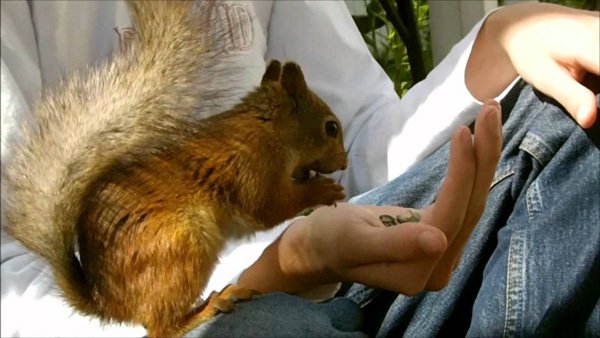Imagine being at your veterinarians office because your furry friend is feeling a little under the weather. Youre expecting a fairly benign diagnosis, perhaps a viral infection requiring a few days of antibiotics and your pet will feel in the pink again. Then the veterinarian comes into the examination room and tells you the tests came back positive for cancer.
Naturally you are in shock, after all cancer is a frightening disease that can bring up a lot of confusing emotional responses. Along with all of the feelings you are experiencing you are also faced with a number of decisions about types of treatments, financing those treatments, and care after treatment, it can all be quite overwhelming.
Once the initial shock has worn off you will find that a diagnosis of cancer is not a hopeless death sentence for your pet. Though there are many types of cancer, about one hundred specific types, it is a relatively treatable disease. It is, in fact, the most curable of all of the chronic diseases our pets may acquire. If the disease is diagnosed early there are many treatment options available. There are advanced therapies available and new ones being developed all of the time and often times our pets will respond to these treatments quite well.
What should you do if your pet has been diagnosed with cancer? First, you need to understand what you are dealing with so educating yourself about the disease is an important first step. Having a knowledge and understanding of the disease will help you in making decisions about your pets treatment. This will also make the disease less frightening and give you a sense of control over the situation.
The word cancer is a very general term. It references any disease where cells reproduce out of control. For reasons that are not fully understood the genetic coding in cells that tells them when to stop dividing fails and the cells reproduce at an accelerated rate forming a large mass of cancer cells called a tumor. The problem that arises then is that this tumor can interfere with normal bodily functions and can damage other healthy cells. If the cancer cells continue to reproduce they can spread, or metastasize, to other areas of the body. Each type of cancer is a different type of disease and creates it own unique set of problems, also different types of cancer respond to different types of treatments. Therefore, it is vital that you know and understand the type of cancer your pet has and how it is treated.
When seeking out information about your pets cancer there are several resources at your disposal. The most powerful and readily accessible of these is your Veterinarian. Ask them to explain any aspects of disease or treatment options that you may not understand. They are there to help both you and your pet through this situation. Ask if they have any pamphlets or other written information that you may have, read it several times and be certain to write down any questions that may come to mind when you are away from the veterinarians office.
Of course, there is a considerable amount of information available online as well. The Internet can be a marvelous resource. You can search for forums and support groups of people who have either had a pet with cancer or help care for pets with cancer. However, as fantastic a resource as the web can be you must be cautious about believing medical advice offered there. It can be difficult to ascertain the qualifications of the advisor or the validity of the information. Always double-check your facts with your veterinarian before making any decisions about your pets treatment. Another source of information is the library; even with todays technology it is still an excellent resource. There you can find books on cancer in general or cancer in animals. Also the librarian can help you find information about organizations that may be of help to you in better understanding your pets illness or local support groups.
While having an understanding and working knowledge of the disease affecting your pet is valuable,xawd;///p the most important question pet parents have is How do we treat my pets cancer? The answer to this question is dependent on several variables in each situation. Each pet is unique and each type of cancer has its own characteristics, which dictate the type of treatment for that cancer. Besides the type of cancer your pet may have some other considerations in choosing the determining the best treatment are pets age as well as their general health.
While there are many different types of treatments for cancer the three most commonly used are, surgery, chemotherapy, and radiation therapy. If a tumor can be removed without damaging other vital organs or tissue your veterinarian may recommend that the tumor be surgically removed. However there are instances where the tumor may be too large or has spread and to try to surgically remove it would endanger the animal. There are also times when the animal may be too weak to withstand the stresses of anesthesia or surgery. In those cases chemotherapy may be an option. With chemotherapy toxic chemicals are introduced into the body through intravenous methods. These chemicals are meant to kill the out of control cancer cells while leaving the healthy cells undamaged. Generally our pets tend to respond to chemotherapy much better than we do and more often than not are spared the unpleasant side affects that people often experience such as nausea and hair loss. With radiation therapy the cancer is bombarded with high doses of radiation. This radiation can be delivered with a narrow beam aimed directly at the tumor or with radioactive implants placed next to the tumor.
Along with the more common treatments there are many alternative types of therapies. Some of these therapies would be considered new medical treatments such as gene therapy, which tries to repair the flawed DNA in the cancer cells, or cryosurgery where the tumor is frozen using liquid nitrogen. Other therapies fall under the category of complimentary therapies such as massage, herbal supplements, and acupuncture.
There are many people involved in the treatment of your pets cancer, the veterinarian themselves, veterinary technicians, pathologists, and veterinary surgeons. Along with all of these professionals you may also have friends and family to help with care after the treatments and moral support. No matter how many people are involved with your pets treatment and recovery you are the most important part of the equation. The best medicine for your pet is your love and attention. Keep them close by as you perform daily activities like watching television. Your touch is important so be sure to pet them often or set aside time to gently brush their fur. This will help your pet feel safe and secure and keep them emotionally happy which will aid in their healing as much as any treatment. The time you spend with your pet should be treasured because no matter what the future brings the memories you make with your best friend are yours too keep for a lifetime.

 6 Health Issues To Watch For In Young Kittens
6 Health Issues T
6 Health Issues To Watch For In Young Kittens
6 Health Issues T
 More Information On The Unusual Toyger Cat Breed
More Information
More Information On The Unusual Toyger Cat Breed
More Information
 A Look At Chicken Coop Designs And Plans
Why would you want to bother yourself with searching fo
A Look At Chicken Coop Designs And Plans
Why would you want to bother yourself with searching fo
 Wagging Tail – Interpreting Dog Behavior
Wagging Tail – Interpreting Dog Behavior
A lot
Wagging Tail – Interpreting Dog Behavior
Wagging Tail – Interpreting Dog Behavior
A lot
 Patellar Luxation In Dogs
Patellar Luxation
Patellar Luxation In Dogs
Patellar Luxation